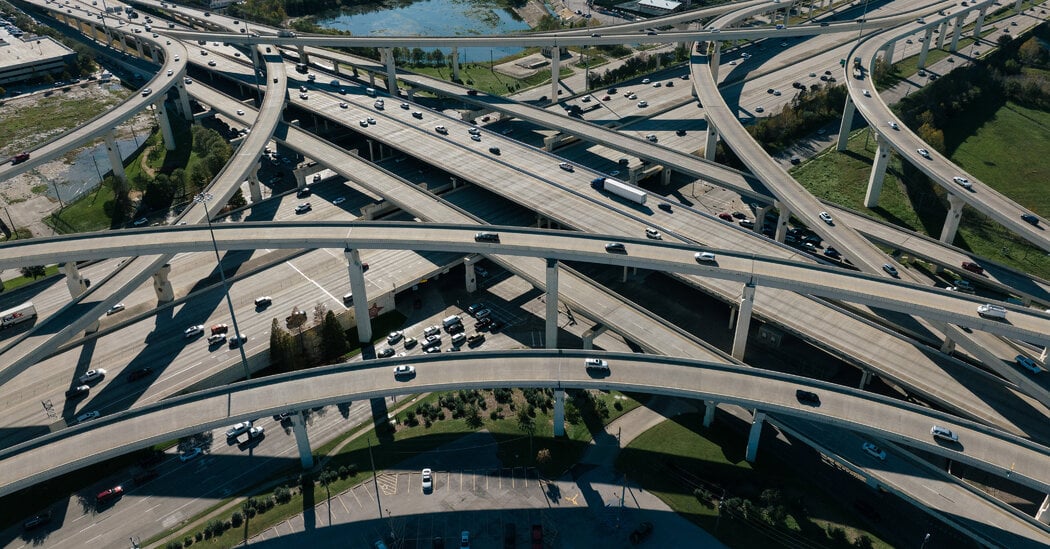For critics of widening projects, the prime example of induced demand is the Katy Freeway in Houston, one of the widest highways in the world with 26 lanes.
Immediately after Katy’s last expansion, in 2008, the project was hailed as a success. But within five years, peak hour travel times on the freeway were longer than before the expansion.
Matt Turner, an economics professor at Brown University and co-author of the 2009 study on congestion, said adding lanes is a fine solution if the goal is to get more cars on the road. But most highway expansion projects, including those in progress in Texas, cite reducing traffic as a primary goal.
“If you keep adding lanes because you want to reduce traffic congestion, you have to be really determined not to learn from history,” Dr. Turner said.



Simply make it a single flat wide open surface, drive where you’re trying to go in a straight line.
If you die, you die.
Sounds like Moscow
Well the population decrease would certainly decrease traffic so I think you’re on to something.
Otherwise called, the Mad Max method.
Yes. This is the basic driving style on the Katy. No rules, no lanes. Just wide open spaces, bumper to bumper at a minimum of 75 mph. On a good day.